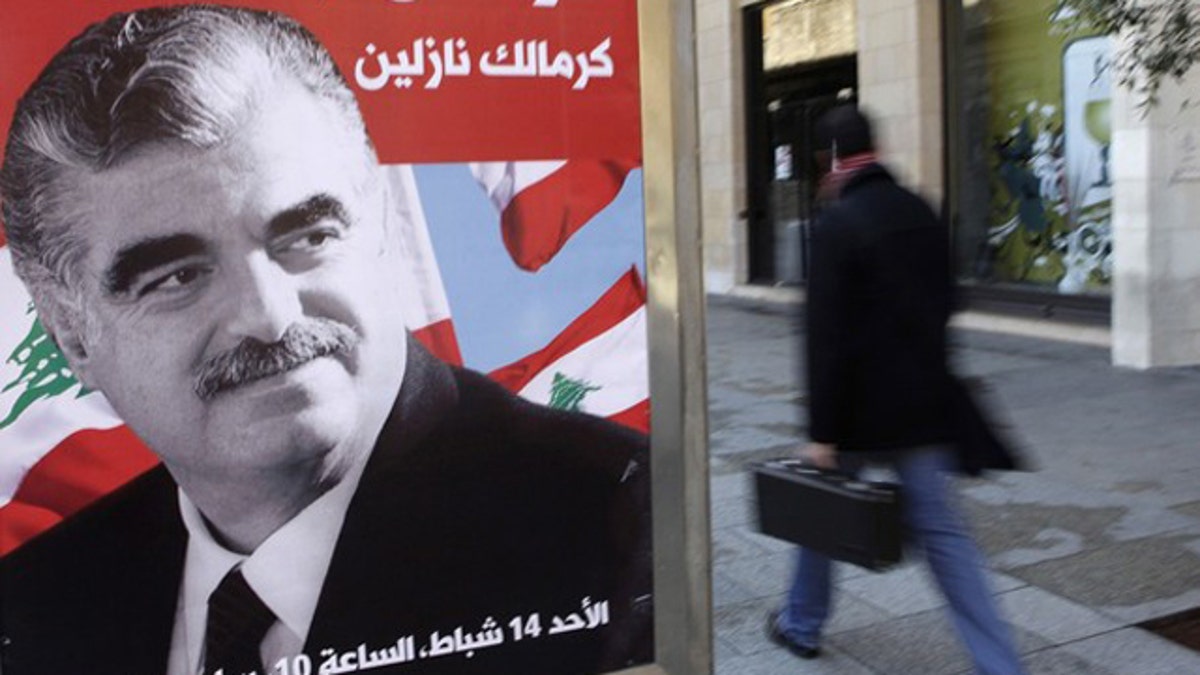
Former Lebanese Prime Minister Rafik Hariri, pictured above, was killed along with 22 other people by a huge truck bomb blast on Feb. 14, 2005, on Beirut's Mediterranean sea front (Reuters).
BEIRUT -- The prosecutor of the U.N. tribunal set up to bring to justice the assassins of former Lebanese Prime Minister Rafik Hariri filed the first indictment in the case Monday, the court announced.
Details of suspects named in the indictment and the charges against them were not released.
Hariri was killed along with 22 other people by a huge truck bomb blast on Feb. 14, 2005, on Beirut's Mediterranean sea front.
Sheik Hassan Nasrallah, leader of Shiite militant group Hezbollah, said last year he expects members of his group to be indicted, a move that many fear could re-ignite sectarian violence that has erupted repeatedly in the tiny nation.
The Iranian- and Syrian-sponsored group fiercely denies any role in the killing.
Hariri was a Sunni, and many Lebanese worry that if the tribunal draws links between the assassination and Hezbollah it could provoke bloodshed between Lebanon's Shiite and Sunni communities.
Tribunal registrar Herman van Hebel said in a statement that prosecutor Daniel Bellemare sent the indictments to Judge Daniel Fransen, who must decide whether to confirm or dismiss them or ask for more evidence.
A billionaire businessman, Hariri was credited with rebuilding Lebanon after its 15-year civil war ended in 1990.
Fransen is expected to take six to 10 weeks studying the evidence before reaching a decision. The names of suspects and evidence against them will only be released if he decides the evidence is strong enough to merit putting them on trial.
News of the indictment came as Lebanon's government has been plunged into turmoil by the resignation last week of Hezbollah and its allies from a broad coalition administration led by Hariri's son, Saad, who remains as caretaker prime minister until a new government is formed.
Hezbollah quit the government after Saad Hariri refused to renounce the U.N.-backed tribunal investigating his father's killing.
Nasrallah has said the group "will cut off the hand" of anyone who tries to arrest any of its members, raising concerns that the indictments could lead to civil strife.
The U.S. has called Hezbollah's walkout a transparent effort to subvert justice.
Lengthy negotiations lie ahead between Lebanon's factions. Hezbollah says it will not support Hariri again for prime minister, but Hariri's backers say they have no other candidate.
According to Lebanon's power-sharing system, the president must be a Christian Maronite, the prime minister a Sunni and the parliament speaker a Shiite.
Each faith makes up about a third of Lebanon's population of 4 million.
The leader of Hezbollah on Sunday defended the decision to bring down Lebanon's government, saying his movement did so without resorting to violence. The speech by Nasrallah -- who commands an arsenal that far outweighs that of the national army -- appeared aimed at keeping tensions low at a time when many Lebanese fear another outbreak of civil conflict.
